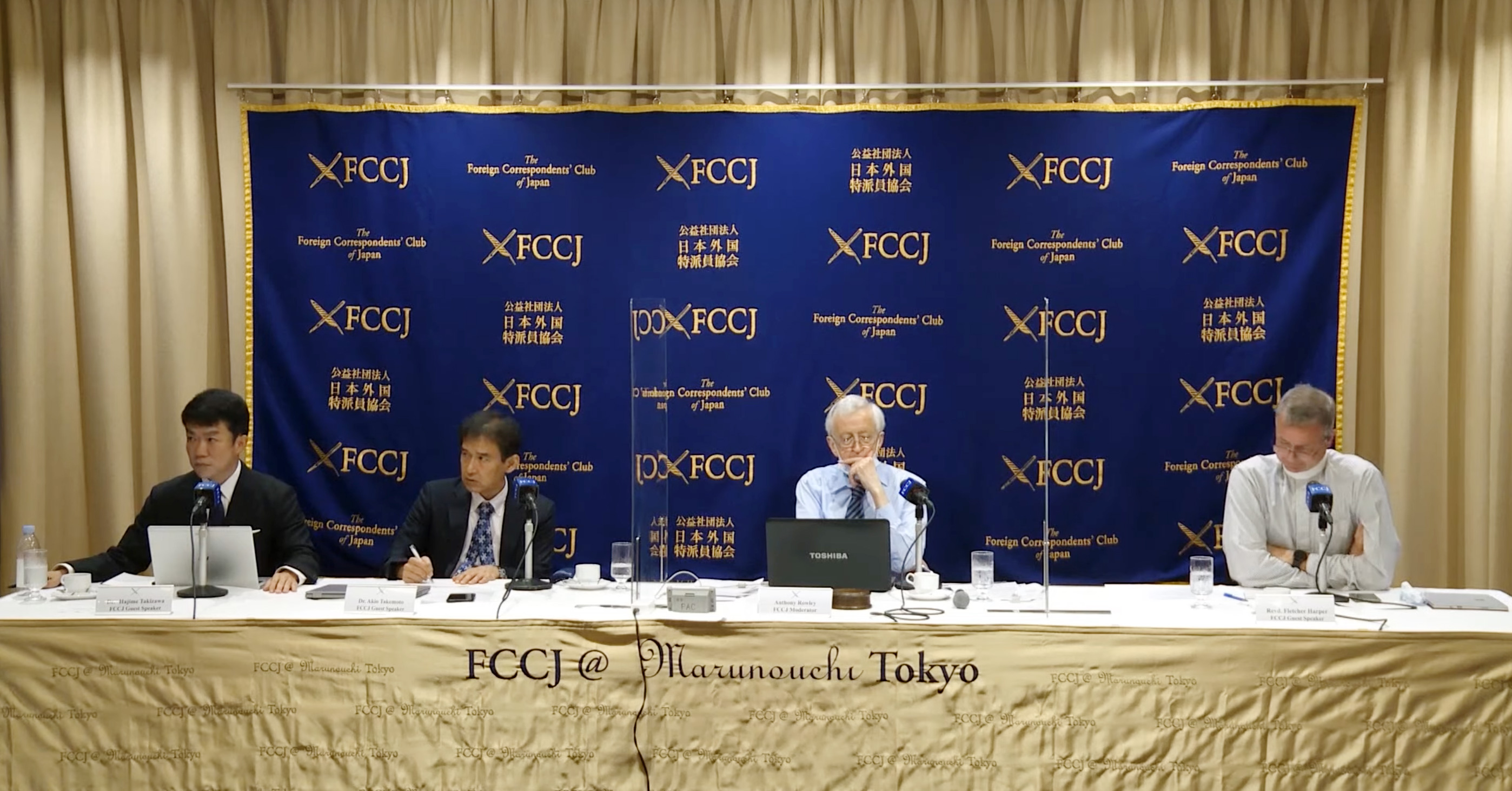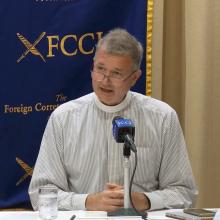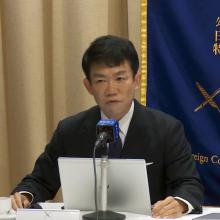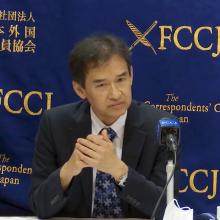Issue:
September 2022
The battle against climate change will be won or lost in the Asia-Pacific, experts tell FCCJ events

Is the world losing the race against time to tackle climate change, and who are the hidden enemies that are seeking to thwart those efforts? These are the critical questions experts tried to address at two recent FCCJ events.
There is still time to prevent a climate catastrophe, but the window of opportunity is narrow and closing, Bruno Carrasco, director general of the Asian Development Bank's Sustainable Development and Climate Change Department, said at Deep Dive event on July 29.

The battle against climate change “will be won or lost” in the Asia-Pacific region, which is responsible for more than a half of global greenhouse gas emissions, Carrasco said. The region includes world-leading carbon emitters China, India, Japan and others.
The Manila-based ADB has, in effect, become the "climate bank" for the Asia-Pacific by applying its resources across a wide spectrum of activities, ranging from climate finance to project design, Carrasco added. But it will need to get the private sector to do more.
The Deep Dive event was entitled, rather dramatically, "Red Alert for a Climate Change Disaster", but with Tokyo and other Japanese cities battling temperatures of around 40C and many countries reporting savage heat waves, fires and floods, it seemed entirely appropriate.
The Deep Dive, together with an FCCJ press conference held on the same day under the title "Climate Change and the Lobbying of Japan Inc.," revealed that the battle to slow and eventually stop global warming needs to be directed against enemies within, as well as against outside forces.
Closer to home, one of those enemies is the public’s reluctance to accept changes in lifestyle – such as fuel usage and food consumptionand – that will be needed to mitigate climate change, Carrasco said.

“We need to be honest that there will be significant changes to our lifestyles," with a particular need for inter-generational changes, he said, adding that younger people will be saddled with a climate change legacy inherited from older generations.
Young people in Japan and around the world are experiencing a “palpable sense of fear and uncertainty” over the impact of climate change”, according to Rev. Fletcher Harper, executive director of Green Faith, an international, multi-faith climate movement.
“We know that the world is not on track [to meet climate change mitigation and adaptation targets] and the gap is disturbingly large," Harper said.
“There are those who seek to prevent action against climate change using sophisticated and cynical methods,” he said - a claim echoed by Dylan Tanner, executive director and co-founder of Influence Map, a UK-based monitoring organisation.
Influence Map tracks the activities of business corporations globally where these impact climate change and makes this data available to governments, company shareholders, the financial sector, the media and others, although it does not seek to "take down" corporations by itself, Tanner said.

Corporate lobbying against climate change prevention and mitigation is an under-reported issue, he said. It is carried out in a low-profile way, albeit sometimes via huge and expensive advertising campaigns and influence peddling (or even influence-buying), he added.
These sometimes succeed in thwarting or diluting efforts to strengthen official regulation of greenhouse gas emissions and address corporate activities that promote climate change, Tanner said. He was critical of the Japan Business Federation, which, he said, pushes for voluntary rather than official action.
Japan came in for criticism from Hajime Takizawa, a policy researcher in the climate and energy division of the Institute for Global Environmental Strategies (IGES), a nominally independent body established by the Japanese government and Kanagawa Prefecture.

Japan is the only G7 nation that has not committed to phasing out coal-fired power stations – the biggest single contributor to greenhouse gas emissions, Takizawa said. Instead, it has promised only to phase out “inefficient” coal plants.
Japan has said it will combine ammonia with coal to fuel power stations that will have lower greenhouse emissions than those running on coal alone. But this will require enormous amounts of imported ammonia, in quantities greater than currently exist worldwide, Takizawa said.
Akio Takemoto, programme head at the United Nations University Institute for the Advanced Study of Sustainability, a leading research and teaching institute based in Tokyo, noted Japan’s contributions to the fight against climate change. He said the university was playing its own part by offering postgraduate degrees in sustainability.
Anthony Rowley is a columnist and contributor for The South China Morning Post.

